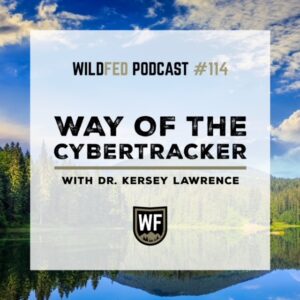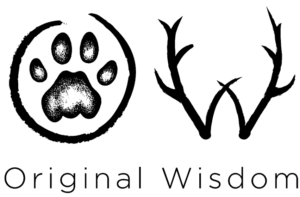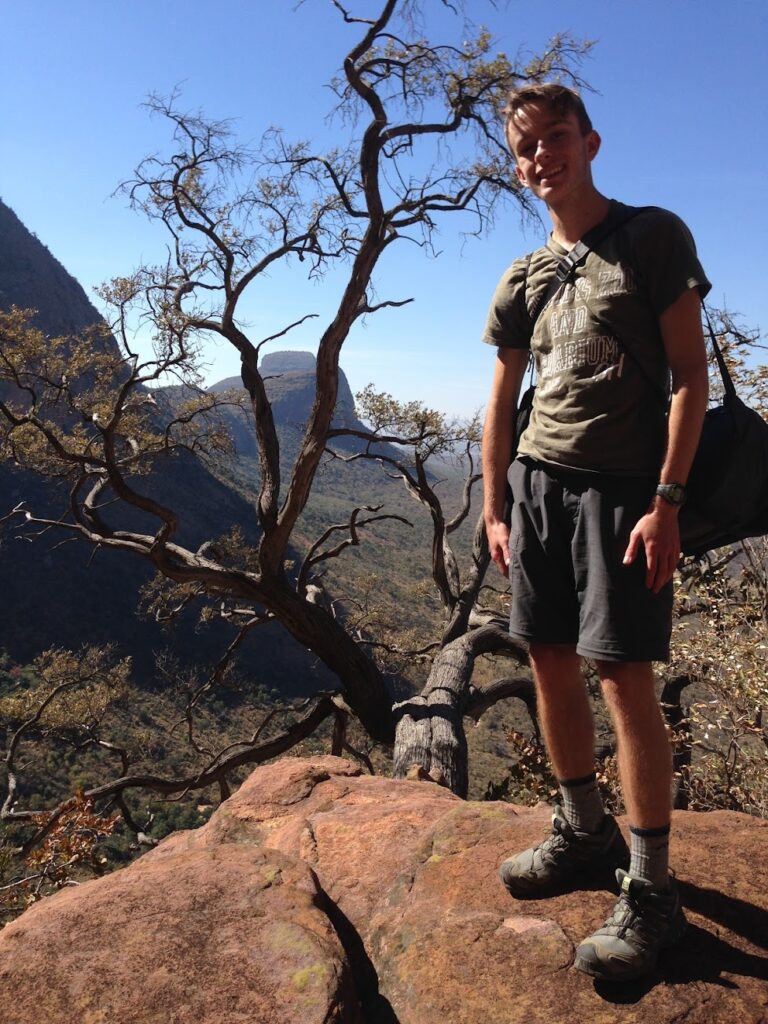And guess who the first trackers were? You got it: hunters. Tracking has become so much more than that to so many people, but hunting is rooted in tracking. It’s also possible that hunting (and tracking) are the roots of human evolution – how did we initially achieve better food, shelter, clothing, and quality of life, leading to the development of all that grey matter between our ears? Tracking has also been described as both art and science. Not only is it the original campfire story, but it could also be what led to the development of science, sharing most of the same steps and principles of the scientific method.
I was super nervous to chat with Daniel, as I always am with people I don’t yet know, and he has quite a following, so I didn’t want to embarrass him or myself. But he put me at ease and kept the conversation interesting and flowing. In fact, we hardly scratched the surface of all there was to say and I feel like I’ve made a new friend!
If you’re interested in learning more, here is what Daniel had to say about our talk, and a link to the podcast itself, below.
—-
From Daniel and the crew at Wildfed:
Today’s guest is Senior Cyber Tracker Kersey Lawrence of Original Wisdom.
If you’ve been listening to the show for a while, you’ve heard me speak to a few skilled trackers in past episodes. This skill, of studying, identifying, and ultimately tracking and trailing animals was — most likely — fundamental to the development of the modern human brain and perhaps even to language itself.
At one time, this skill would have been nearly universal amongst humans, but of course, in our more modern era, it’s atrophied to the point that most of us can’t identify the tracks of the native wildlife around us, no less interpret them.
Now, modern hunters are a bit of an exception. Most of us are aware of the track patterns of the animals we pursue, and use these tracks, albeit in a rudimentary way, to locate our quarry. That kind of tracking is a bit like learning an alphabet, or maybe even reading a few monosyllabic words. What I’m talking with Kersey about today is different. It’s more akin to reading sentences, paragraphs, and ultimately books of knowledge about how animals have used the landscape in the recent past and potentially might use it in the future too.
There are places and peoples in the world where this skill is still alive, part of an unbroken lineage that stretches back into the deepest recesses of human antiquity. And there are also folks, for whom this field of study came later in life but who have developed it into a contemporary art-form and culture — who’ve codified it and who are ensuring it doesn’t blink out of existence the way so much of our ancestral skills and technologies have.
Kersey has a foot in both worlds. She lives part time and works alongside trackers in Africa, who come from communities where tracking is still practiced the way it always has been. Places where the practice of this art was never generationally interrupted. But she also lives part time here in the US where she teaches tracking to folks whose lineage forgot the art of tracking long ago.
Kersey is the first woman to ever earn the title of Senior Tracker in the internationally renowned CyberTracker system. Today she’s going to tell us what CyberTracker is, and about the art of tracking. She’s done the deep dive, and she’s going to introduce us to something our ancestors forgot long ago, and maybe even invite us to pick it up where those distant relatives left off.
To not just follow in their footsteps, but to follow their footsteps themselves.
Give this episode a listen wherever you get your podcasts, and please share it with your friends: https://www.wild-fed.com/podcast/114
And give us a follow — I now post regularly over at WildFed #WildFed
The WildFed Podcast is brought to you by Surthrival.

—-
If you like this, please share it, and tag us at #trackingisoriginalwisdom, #trackermentoring, #natureguidetraining, #cybertracker , and #trackercertification
<strong>Download Original Wisdom’s recommended reading list for trackers by signing up for our newsletter!</strong>
<strong>Once the sign-up form has been submitted, you will be re-directed to the download page.</strong>
Our recommended reading list is specific to Southern Africa and North America, but, a good tracking book is helpful in any region as a starting point to learn how to look at track morphology and animal behavior.
[contact-form-7 id=”2892″ title=”Subscribe to the newsletter”]
<h1><strong>Interested in online and correspondence tracking courses? Visit us at </strong><a href=”https://trackermentoring.com/”><strong>TrackerMentoring.com</strong></a><strong>!</strong></h1>

